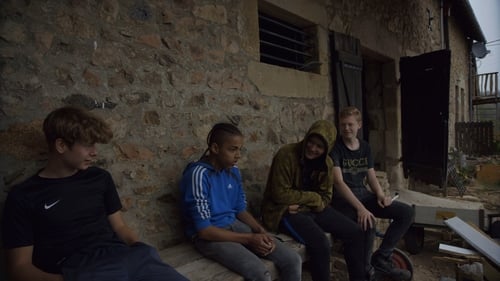Teekay The Salto King (2023)
ジャンル : ドキュメンタリー
上映時間 : 0分
演出 : Aiman Hassani
シノプシス
Rapper and breakdancer Teekay from Eindhoven is known for his somersaults and vlogs that are causing a stir. During the corona riots in 2021, he not only gained national fame as a vlog reporter, but also ended up briefly in jail. After his junior year, Teekay wants to change course and, above all, be an example for other young people. In the film he takes us into his life and talks about his childhood in foster homes, the mistakes he made and about his dreams. What is Teekay looking for?

At the end of 2003 the main building of the Amsterdam Rijksmuseum has closed, in the words of managing director Ronald de Leeuw, becoming 'the most conceivable art museum'. The Spanish architects Cruz and Ortiz signed for the big design; in 2008 the modernized museum would open with a pioneering museum concept. Moviemaker Hoogendijk followed the first four years of what is called the biggest Dutch cultural operation in history.

Portrait of Arnhem destroyed by war. Citizens and volunteers clear the rubble and start the reconstruction of their city.

The ruined harbor of Rotterdam obstructs the recovery of The Netherlands after the war. Rapidly and with borrowed strength the harbor takes its rightful place in the city of Rotterdam.

An impression of the repairs of the sluice of Ijmuiden after the damage taken during the war.

Bunkers, mines and barbed wire are removed to recover the pre-war landscape.

Ode on the resilience of Rotterdam, where people are working hard on the reconstruction of the city that was destroyed in the war. Winner of the prize for best realistic film at the 1953 Cannes Film Festival.

A boy tries invain to get aboard a fishing boat. Gazing over the water he imagines a life aboard.

A documentary film that highlights two street derived dance styles, Clowning and Krumping, that came out of the low income neighborhoods of L.A.. Director David LaChapelle interviews each dance crew about how their unique dances evolved. A new and positive activity away from the drugs, guns, and gangs that ruled their neighborhood. A raw film about a growing sub-culture movements in America.

The documentary that answers the question: is having month-long double paid vacations, no fear of homelessness, and universal health care the nightmare we've been warned about? The answer may surprise you.

The parents are at their wits’ end, so a temporary supervision order is the last hope for a group of teenagers in Punks. Now, on a remote farm in France, they’re going to have to get their lives back on track, with the help of a counselor. If they want any chance of a happy life, they need to engage in some frank and painful conversations. Mitchel has to find a way to get along with his father, but maybe too much has already happened since his mother died. Jahlano is already at the next stage: he’s no longer allowed to live with his mother, and needs to get over the disappointment. Mike, meanwhile, is struggling with his image as a boy who’s “got a screw loose.” Filmed in constant close-up by director Maasja Ooms, the teenagers try to tame their demons with music and therapy, but problems from the past keep resurfacing. In this intimate and sincere portrait, these troubled kids show us their most vulnerable sides.

From Henry Chalfant, the director genre defining documentary Style Wars, comes what was intended to be the first installment in a regular television series on New York's bludgeoning hip-hop culture, with a specific focus on graffiti. Funding fell through but the material was just to good be left to languish. Chalfant put together what he had and, like Style Wars, it continues to stand as a document of a culture in blossom.

First broadcast in 1987 on the UK's Channel 4, Bombin' is a documentary about Afrika Bambaataa's Zulu nation bringing American hip-hop culture to the UK for first time. The main focus is the graffiti art of Brim and the variety of reactions he is faced with from the British public and press.

Documentary that shows the changing attitude towards immigrant labor in The Netherlands. The documentary follows three immigrants that arrived in Holland 30 years ago to work in a bakery.

The film Together we cycle investigates the critical events that has led to the revival of the Dutch cycling culture. For most people, cycling in the Netherlands, seems a natural phenomenon. However, until the 1970s the development of mobility in the Netherlands followed trents across the globe. The bicycle had had its day, and the future belonged to the car. The only thing that had to be done was to adapt cities to the influx of cars. Then Dutch society took a different turn. Against all odds people kept on cycling. The question why this happened in the Netherlands, has not an easy answer. There are many factors, events and circumstances that worked together, both socially and policy-wise. In Together we cycle, key players tell the story of the bumpy road which led to the current state. Where cycling is an obvious choice for most citizens.

In this short documentary, we take a look at the history and future of roller derby in the Netherlands, while also touching on subjects such as image and the rise of men’s teams in this traditionally female sport. We tried to capture the Roller Derby culture with grungy 16mm film overlays and an eclectic mix of colors, switching from black and white, back to color. This, combined with the use of stock footage, the Whip It trailer and choice of music really help to sell the vibe and sensibilities of roller derby.





